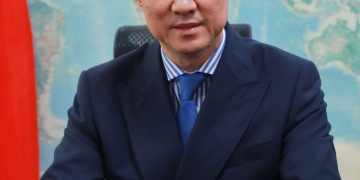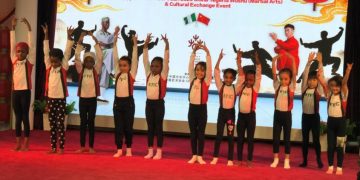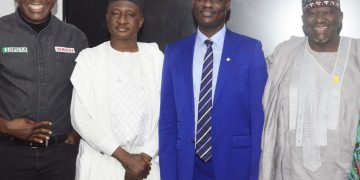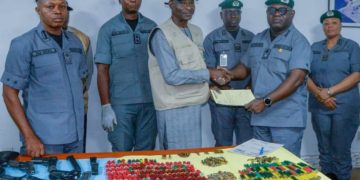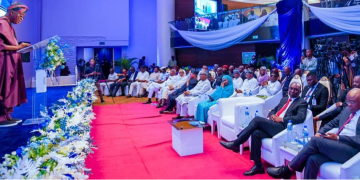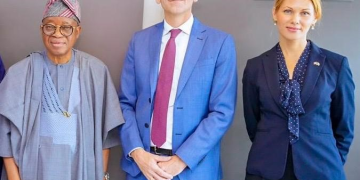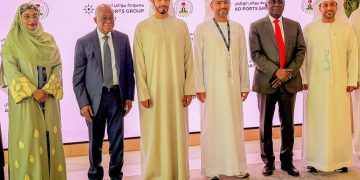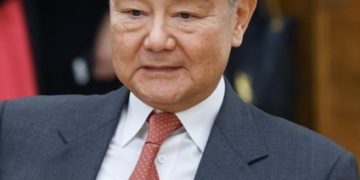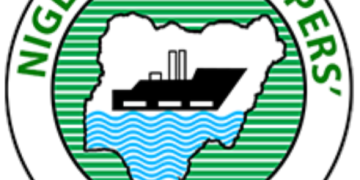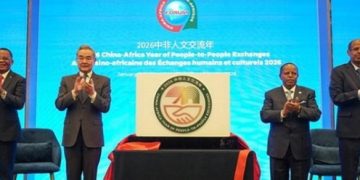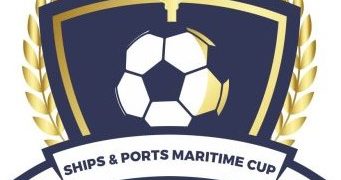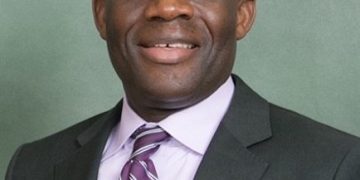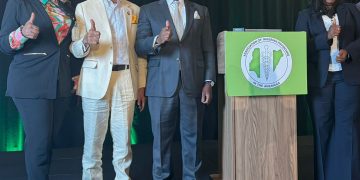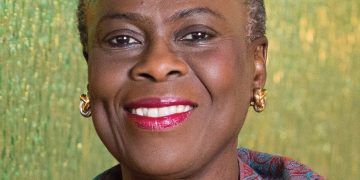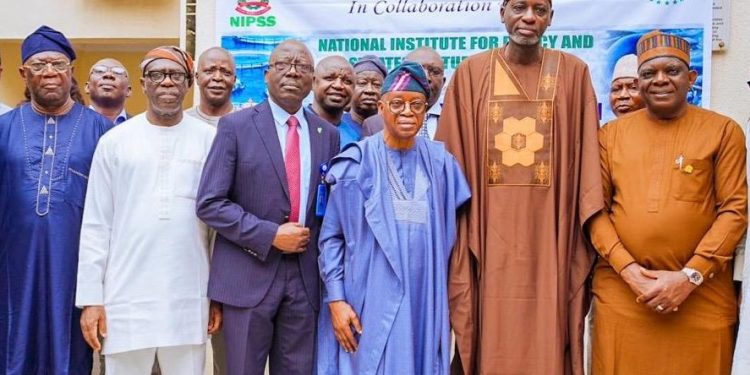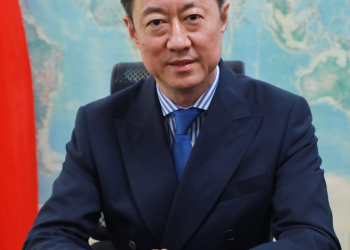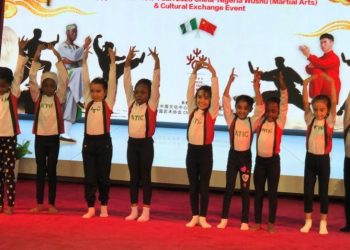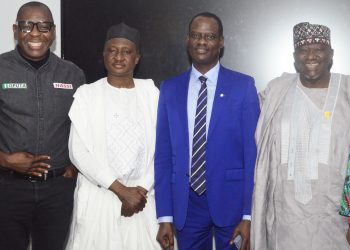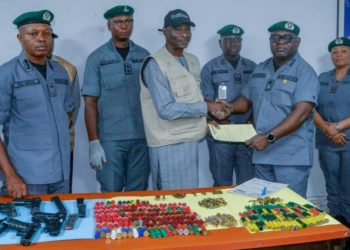- Director of Fisheries and Aquaculture, Federal Ministry of Marine and Blue Economy, Wellington Omoragbon (left), Executive Director/Chief Executive Officer, Nigerian Institute of Oceanography and Marine Research (NIOMR), Professor Abiodun Sule, Permanent Secretary at the ministry, Olufemi Oloruntola, the Minister, Adegboyega Oyetola, Director-General, National Institute for Policy and Strategic Studies (NIPSS), Professor Ayo Omotayo, and Executive Secretary/Chief Executive Officer, Nigerian Shippers’ Council, Dr. Pius Akutah, at the opening of a roundtable on Accelerating National Fish Production… in Lagos
By Anthony Nwachukwu
The Federal Ministry of Marine and Blue Economy and the National Institute for Policy and Strategic Studies (NIPSS) are partnering in a coordinated policy roadmap to accelerate national fish production and close Nigeria’s estimated 2.2 million metric tonne supply gap.
Speaking in Lagos at the opening of a roundtable on Accelerating National Fish Production, the Minister of Marine and Blue Economy, Adegboyega Oyetola, said the collaboration with NIPSS marks a critical step in implementing President Bola Tinubu’s focus on food security, job creation and economic diversification.
“Current output meets only about 38.9 per cent of the 3.6 million metric tonnes of fish required annually,” a statement from the Special Adviser to the Minister of Marine and Blue Economy, Dr. Bolaji Akinola, quoted Oyetola to say.
“This leaves a deficit of over 2.2 million metric tonnes, forcing Nigeria to rely heavily on imports. This trend is unsustainable – economically, nutritionally and environmentally.”
The minister said the roundtable aims to produce a National Fish Production Acceleration Roadmap to guide strategic investments and reforms in the fisheries and aquaculture sub-sector. He added that new policies and legal frameworks, including the Fisheries Bill and the National Fisheries and Aquaculture Policy, are being developed to strengthen sustainability and governance.
Oyetola also highlighted digital reforms within the ministry, including the automation of fisheries operations and the establishment of a Blue Data Bank in partnership with the World Bank’s PROBLUE Programme. According to him, initiatives such as the Green Money Project are already empowering youth and women to engage in aquaculture through input support and training.
On his part, the Director-General of NIPSS, Professor Ayo Omotayo, reaffirmed the institute’s commitment to supporting evidence-based policymaking that can help Nigeria achieve fish self-sufficiency. He stated that NIPSS would continue to work with the ministry to translate the outcomes of the round table into actionable strategies.
The two-day forum, which has experts, operators and other stakeholders in attendance, is expected to generate recommendations that will inform national policy and investment decisions aimed at boosting fish production, reducing imports, and promoting sustainable growth within Nigeria’s Blue Economy.

